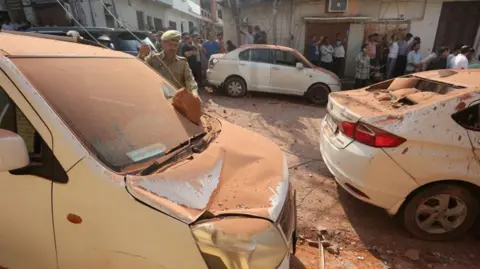Fatah 2 Missile: Impact on South Asia’s Security Landscape
The Fatah 2 missile has quickly become a significant point of discussion in the evolving security dynamics of South Asia. As tensions between India and Pakistan reach new heights, the introduction and deployment of advanced missile technologies—like the Fatah 2—are setting off new debates among experts and policymakers. In this article, we examine the Fatah 2 missile, its role in recent conflicts, and its potential impact on regional peace.

What Is the Fatah 2 Missile?
The Fatah 2 missile is a next-generation tactical surface-to-surface missile known for its precision and extended range capabilities. Designed for rapid response, it is believed to be capable of targeting both military and strategic installations with remarkable accuracy, increasing its value in modern combat scenarios.
The Fatah 2 Missile in Recent India-Pakistan Tensions
In May 2025, renewed hostilities between India and Pakistan once again brought the world’s attention to the fraught climate in the Kashmir region. Reports indicated the use of advanced munitions, including the Fatah 2 missile, during exchanges across the Line of Control. This escalation followed a tragic attack on civilians in Pahalgam, which fueled a cycle of retaliatory strikes.
Both sides accused each other of ceasefire violations, even after agreeing to halt hostilities. As highlighted in this BBC News article, the post-ceasefire period remained tense, with explosions and shelling reported in several Kashmiri towns. The deployment of precision missiles like the Fatah 2 further complicated diplomatic efforts to restore calm.
For continuous updates and analysis on the developing situation in Kashmir, CNN provides in-depth coverage. Their live updates page details how military strategies—including the use of advanced missiles—are having a profound effect on ceasefire negotiations.
Regional Security and Escalation Concerns
The growing missile capabilities of both India and Pakistan increase the risk of miscalculation and unintended escalation. Experts have noted that technologies such as the Fatah 2 missile shrink reaction times, placing added pressure on leadership to act quickly. With both nations possessing nuclear arsenals, any escalation has the potential for far-reaching consequences.
A comprehensive analysis by ABC News delves deeper into the roots of the conflict and the role advanced weaponry plays in the region. The article also examines water disputes, religious tensions, and nationalist politics, all of which contribute to ongoing instability.
What Lies Ahead?
Despite recent ceasefire agreements, the situation in South Asia remains fragile. As India and Pakistan continue to modernize their arsenals, including the deployment of sophisticated systems like the Fatah 2 missile, there is an urgent need for sustained diplomacy and confidence-building measures. International actors have facilitated dialogue, but the underlying disputes remain unresolved.
Conclusion
The Fatah 2 missile’s arrival in South Asia marks a significant step in the region’s evolving security environment. While it adds a layer of deterrence, it also escalates the stakes during periods of conflict. Keeping informed with credible sources and supporting efforts for peace is essential for those concerned about the future of South Asia. Follow trusted outlets for updates, and advocate for solutions that prioritize stability over escalation.